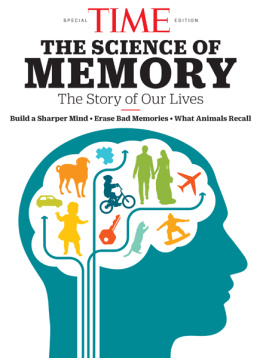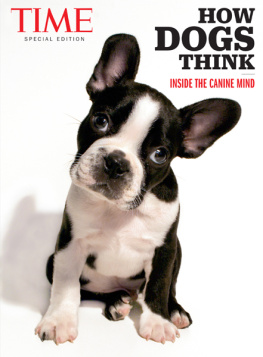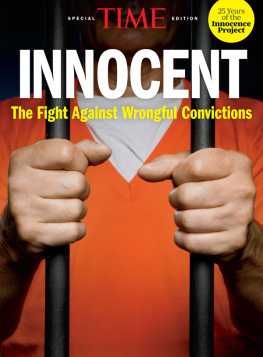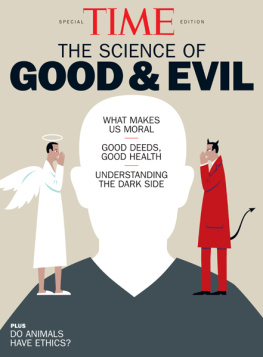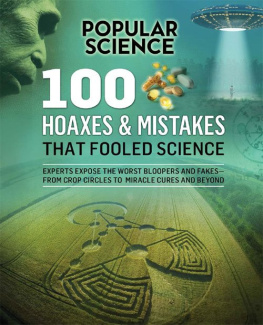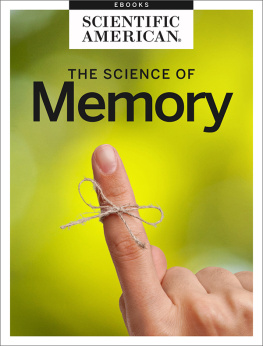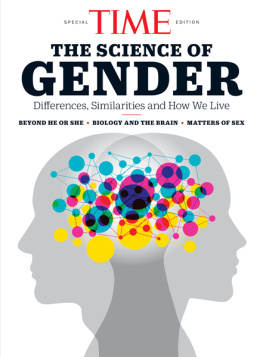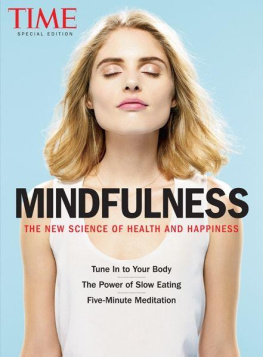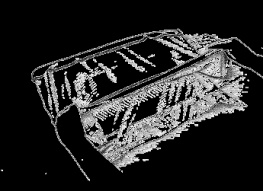The Editors of TIME - TIME the Science of Memory
Here you can read online The Editors of TIME - TIME the Science of Memory full text of the book (entire story) in english for free. Download pdf and epub, get meaning, cover and reviews about this ebook. year: 2018, publisher: Time Home Entertainment, genre: Romance novel. Description of the work, (preface) as well as reviews are available. Best literature library LitArk.com created for fans of good reading and offers a wide selection of genres:
Romance novel
Science fiction
Adventure
Detective
Science
History
Home and family
Prose
Art
Politics
Computer
Non-fiction
Religion
Business
Children
Humor
Choose a favorite category and find really read worthwhile books. Enjoy immersion in the world of imagination, feel the emotions of the characters or learn something new for yourself, make an fascinating discovery.
- Book:TIME the Science of Memory
- Author:
- Publisher:Time Home Entertainment
- Genre:
- Year:2018
- Rating:5 / 5
- Favourites:Add to favourites
- Your mark:
- 100
- 1
- 2
- 3
- 4
- 5
TIME the Science of Memory: summary, description and annotation
We offer to read an annotation, description, summary or preface (depends on what the author of the book "TIME the Science of Memory" wrote himself). If you haven't found the necessary information about the book — write in the comments, we will try to find it.
TIME the Science of Memory — read online for free the complete book (whole text) full work
Below is the text of the book, divided by pages. System saving the place of the last page read, allows you to conveniently read the book "TIME the Science of Memory" online for free, without having to search again every time where you left off. Put a bookmark, and you can go to the page where you finished reading at any time.
Font size:
Interval:
Bookmark:


THE SCIENCE OF MEMORY
The Story of Our Lives

INTRODUCTION
WHY WE REMEMBER
From an evolutionary point of view, it comes down to survival of the fittest. He who endures remembers where the food is and where the predators lurk
By Eileen Daspin
.png)
Early humans had to remember where predators hid. Illustration from LHomme Primitif by Louis Figuier.
FOR AN EXPERIMENT ON NAVIGATIONAL skills and natural selection, the settinga Santa Barbara, Calif., farmers market on a Saturday morningcould not have been more Darwinian. So was the question at hand: How would spatial memory and adaptive behavior play out for a modern hunter-gatherer?
To find out, a group of psychology professors posted themselves at the markets entrance and enlisted shoppers as foragers. Eighty-six subjects were led along intentionally circuitous routes to pre-selected food stalls. There, they tasted the farmers goods, were guided to the center of the market and finally were given a special device to indicate the locations of the foods they had sampled. True to Paleolithic form, the shoppers easily identified the locations that provided goods with the most energyolive oil, avocados and nutsbut struggled to place booths stocking calorie-light leafy greens.
I was surprised at how cleanly the results came out, says psychology professor Joshua New, one of the designers of the study, who now teaches at Columbia University. People hadnt thought about encoding landmarks like that. But if you eat at a subpar restaurant, youre not going to commit memory to learning how to get back there.
From an evolutionary point of view, the reason we remember, like pretty much all human activity, comes down to survival of the fittest. He who is going to make it out alive remembers where the food is. And what the bad guys look like. And the best place to hide from predators. What scientists call adaptive memorywhich is always functioning to figure out new solutions to problemsis key to nearly everything we do. We have to remember to physically navigate the world, to reproduce, to interact with others, to recognize kin, to know the truth of a situation. Memory is what allows us to learn, to acquire, to store and retrieve information.
As machines, our memories are amazing, able to store long-term some 2.5 petabytes of data, by one professors calculation. Thats the equivalent of 300 million hours of television programming. The catch is that memories are as faulty as they are essential. No two people remember the same event the same way, a fact famously illustrated in the Japanese crime drama Rashomon , in which four people each remembered killing the same samuraiincluding the samurai himself, who returned from the dead to testify that he had committed hara-kiri.
Our memories are amazing, able to store long-term some 2.5 petabytes of dataabout 300 million hours of television programming.
Memory is so crucial, we even forget to remember, with the brain pushing out less-important memories to make room for the more-important ones. This is a phenomenon that Friedrich Nietzsche called active forgetfulness, by his lights, an important component of happiness. The German philosophers argument wasnt that you should be pleased you forgot where you parked your car, but rather that not remembering paves the way for peace of mind. To shut the doors and windows of consciousness for a while... Nietzsche wrote in On the Genealogy of Morals/Ecce Homo , allows for a little tabula rasa of consciousness to make room for something new... like a doorkeeper or guardian of mental order, rest and etiquette.
Research suggests that memory literally starts in utero. When Dutch professors put a honking, vibrating device on the abdomens of women in their 30th to 38th weeks of pregnancy, they found that the fetuses quickly recalled the noise, so that when the device was sounded 10 minutes later, they didnt squirm and their heartbeats remained stable. The 34-week-olds even remembered the noise four weeks later. Its like getting used to a New York train station, lead author J.G. Nijhuis told Scientific American . It is a learning capability to distinguish safe from unsafe stimuli. It is a primitive form of memory.
Then it gets a little more complicated. Infants and toddlers remember, but by about age 7, the first three years of memories are almost entirely erased from the conscious memory and overlaid with new ones. From there, our memories shift and evolve, colored constantly by our experiences. Why do we remember? As Oscar Wilde once suggested, to fill in the diary we all carry about with us.

Editor Edward Felsenthal
Creative Director D.W. Pine
THE SCIENCE OF MEMORY
Editorial Director Kostya Kennedy
Editor Eileen Daspin
Designer Patty Alvarez
Photo Editors Robert Conway, Rachel Hatch
Writers J.I. Baker, David Bjerklie, Joshua Foer, Markham Heid, Richard Jerome, Emily Joshu, Steve Leder, Hallie Levine, Amanda MacMillan, Su Meck, Linda Melone, Courtney Mifsud, Patrick Rogers
Copy Editor Joseph McCombs
Researcher Gillian Aldrich
Photo Assistant Steph Durante
Editorial Production David Sloan
TIME INC. BOOKS, A DIVISION OF MEREDITH CORPORATION
Senior Vice President, Finance Anthony Palumbo
Vice President, Marketing Jeremy Biloon
Director, Brand Marketing Jean Kennedy
Sales Director Christi Crowley
Associate Director, Brand Marketing Bryan Christian
Associate Director, Finance Jill Earyes
Senior Brand Manager Katherine Barnet
Editorial Director Kostya Kennedy
Creative Director Gary Stewart
Director of Photography Christina Lieberman
Editorial Operations Director Jamie Roth Major
Manager, Editorial Operations Gina Scauzillo
Special thanks: Don Armstrong, Brad Beatson, Melissa Frankenberry, Kate Roncinske
MEREDITH NATIONAL MEDIA GROUP
President Jon Werther
Meredith Magazines President Doug Olson
President, Meredith Digital Stan Pavlovsky
President, Consumer Products Tom Witschi
Chief Revenue Officer Michael Brownstein
Chief Marketing & Data Officer Alysia Borsa
Marketing & Integrated Communications Nancy Weber
SENIOR VICE PRESIDENTS
Consumer Revenue Andy Wilson
Digital Sales Marla Newman
Research Solutions Britta Cleveland
Product & Technology Justin Law
Chief Digital Officer Matt Minoff
VICE PRESIDENTS
Finance Chris Susil
Business Planning & Analysis Rob Silverstone
Content Licensing Larry Sommers
Corporate Sales Brian Kightlinger
Direct Media Patti Follo
Strategic Sourcing, Newsstand, Production Chuck Howell
Consumer Marketing Steve Crowe
Vice President, Group Editorial Director Stephen Orr
Director, Editorial Operations & Finance Greg Kayko
MEREDITH CORPORATION
President & Chief Executive Officer Tom Harty
Chief Financial Officer Joseph Ceryanec
Chief Development Officer John Zieser
President, Meredith Local Media Group Patrick McCreery
Next pageFont size:
Interval:
Bookmark:
Similar books «TIME the Science of Memory»
Look at similar books to TIME the Science of Memory. We have selected literature similar in name and meaning in the hope of providing readers with more options to find new, interesting, not yet read works.
Discussion, reviews of the book TIME the Science of Memory and just readers' own opinions. Leave your comments, write what you think about the work, its meaning or the main characters. Specify what exactly you liked and what you didn't like, and why you think so.

